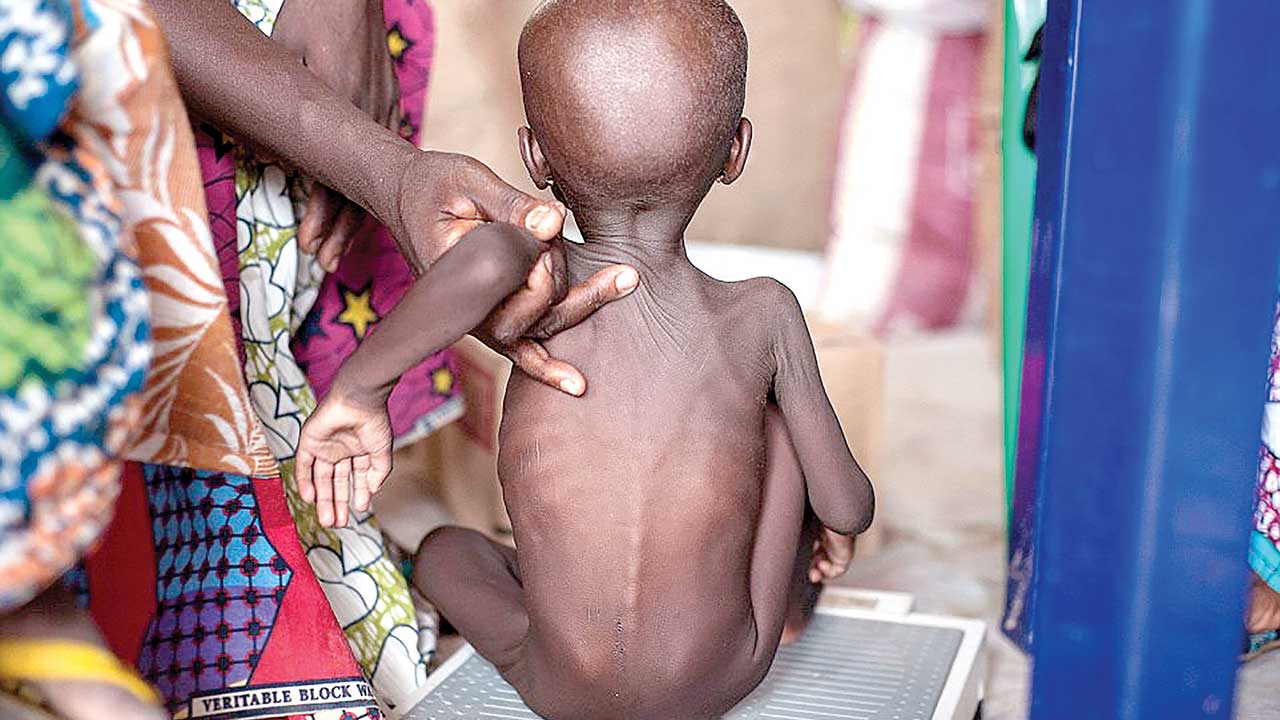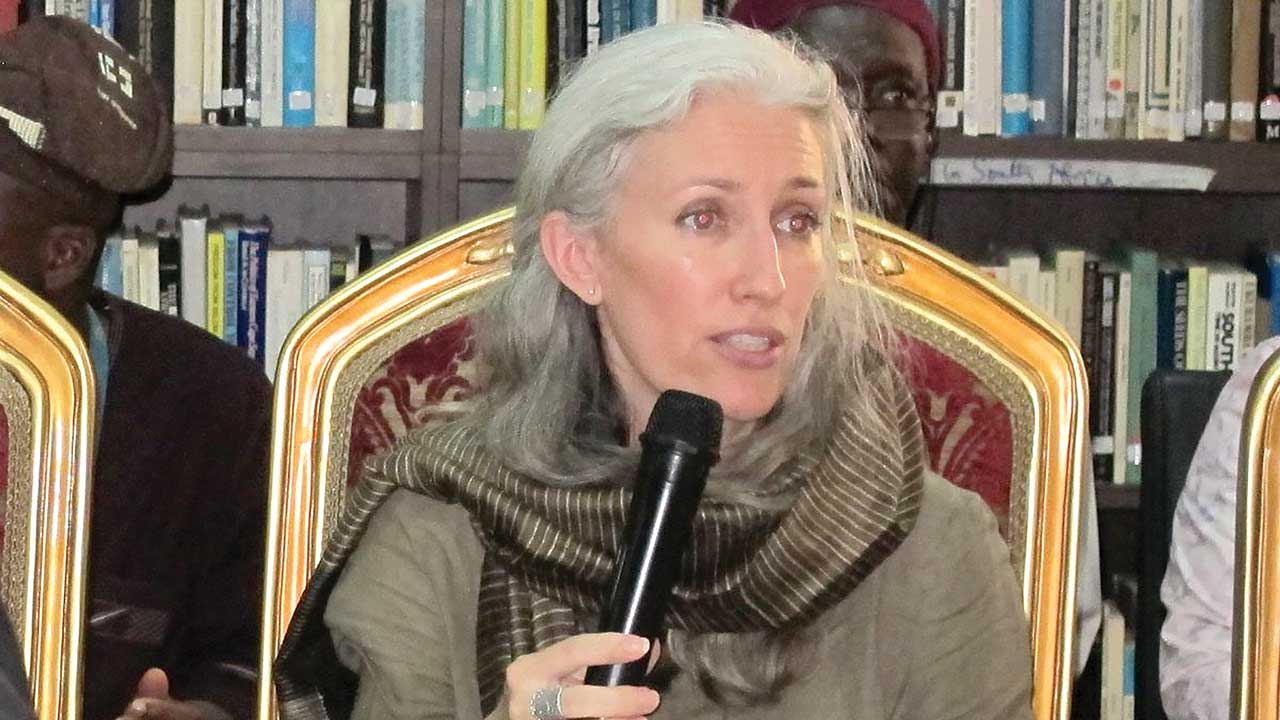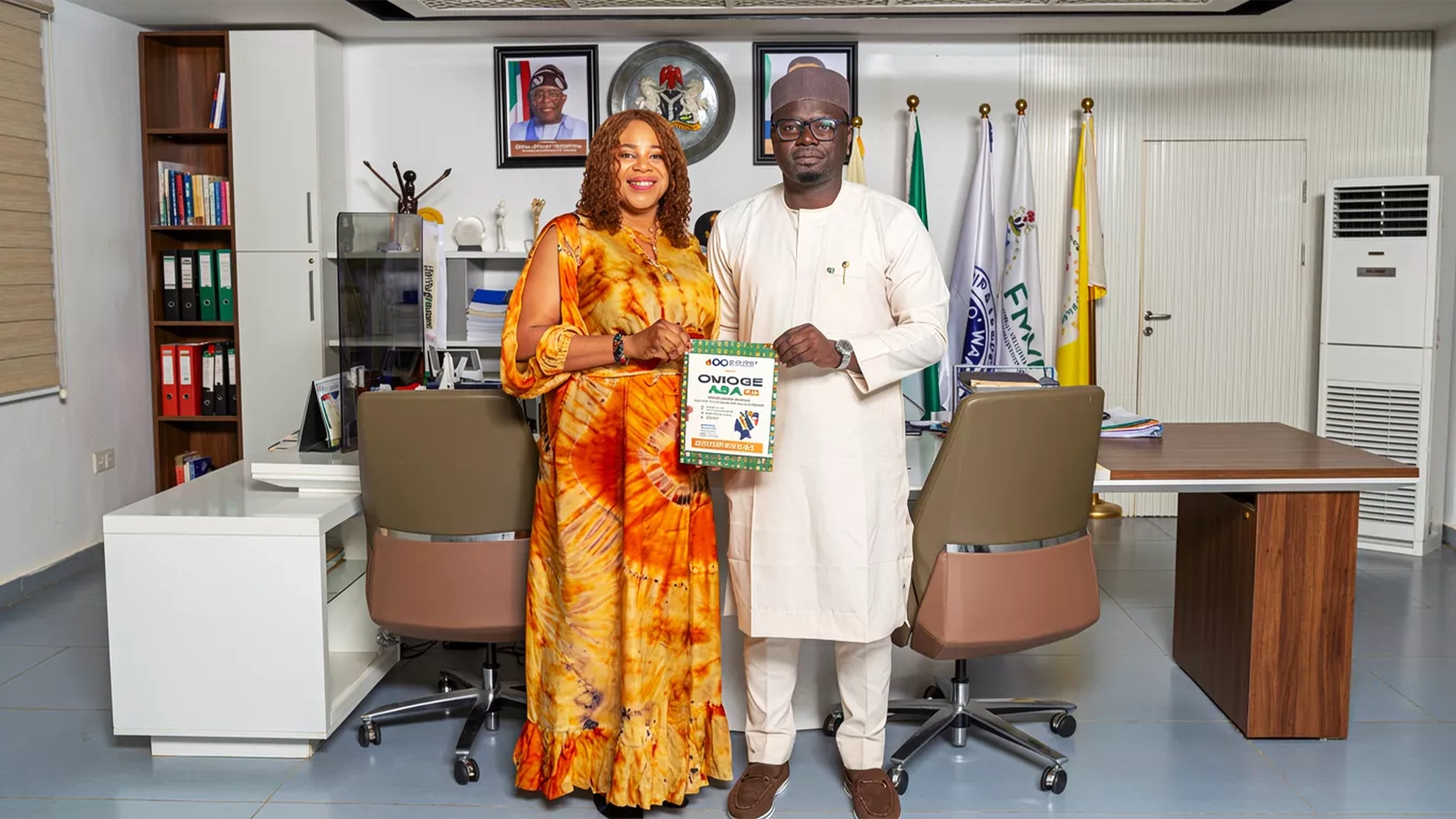
Rekia Musa is 13-years old. Rekia is six months pregnant. Rekia, married, is out-of-school and has to hawk items on the streets to survive.
Eno Obi is nine-years-old. She is a house girl to a rich family in Calabar. Eno was taken from her parents when she was just six. Eno was violated at the age of eight by her ‘uncle’.
Elijah Abubakar is stunted and malnourished. Elijah, now four-years-old was born premature with low birth weight. Elijah weighed just 1.4kg at birth.
Rekia, Eno and Elijah represent millions of Nigerian children who are abused on daily basis and deprived of their rights for decent living.
Who is a child? The National Child Welfare Policy of 1989 defines a child as anybody who is 12 years or below. However, a draft decree put into law has now set the age of the child in Nigeria as 18 years or below.
The United Nations Convention on the Rights of the Child defines child as “a human being below the age of 18 years unless under the law applicable to the child, majority is attained earlier”. This is ratified by 192 of 194 member countries.
Child abuse or child maltreatment is physical, sexual, and/or psychological maltreatment or neglect of a child or children, especially by a parent or a caregiver. Child abuse may include any act or failure to act by a parent or a caregiver that results in actual or potential harm to a child, and can occur in a child’s home, or in the organizations, schools or communities the child interacts with.
The terms child abuse and child maltreatment are often used interchangeably, although some researchers make a distinction between them, treating child maltreatment as an umbrella term to cover neglect, exploitation, and trafficking.
Challenge
Several studies have shown that abuse in all its forms is a daily reality for many Nigerian children and only a fraction ever receive help.
According to the United Nations Children Fund (UNICEF), six out of every 10 children experience some form of violence – one in four girls and 10 per cent of boys have been victims of sexual violence. Of the children who reported violence, fewer than five out of a 100 received any form of support. The drivers of violence against children (VAC) are rooted in social norms, including around the use of violent discipline, violence against women and community beliefs about witchcraft, all of which increase children’s vulnerability.
Nigeria has the largest number of child brides in Africa with more than 23 million girls and women who were married as children, most of them from poor and rural communities. While data suggests a decline of nine per cent in the prevalence of child marriage since 2003, and a projected further decrease of six per cent by 2030, Nigeria’s rapid population growth means that the number of child brides will in fact increase by more than one million by 2030 and double by 2050.
Also, UNICEF said just over one in four girls and women (27 per cent) aged 15-49 years have undergone female genital mutilation/cutting (FGM/C), a rate that is still lower in Nigeria than in many countries. However, due to its large population, Nigeria has the third highest absolute number of women and girls (19.9 million) who have undergone FGM/C worldwide. While prevalence continues to drop, with a projected further five-point decline by 2030, the population explosion is expected to result in the numbers of those affected to remain unchanged by 2030.
According to UNICEF, only 30 per cent of children under-five years were registered at birth. Besides being a ‘first right’ of any child, improved birth registration is critical for national planning and governance functions, and serves as a foundation for achieving progress in wider child protection areas and the attainment of Sustainable Development Goals.
Rise in mental disorders, violence associated with abuse in early childhood
The growing violent crimes and mental disorders in the country have been associated with rise in child abuse.
A Massachusetts General Hospital (MGH), United States, study has found evidence that children under three years old are most the vulnerable to the effects of adversity – experiences including poverty, family and financial instability, and abuse – on their epigenetic profiles, chemical tags that alter gene expression and may have consequences for future mental health.
The report published in the May 15 issue of Biological Psychiatry found that the timing of adverse experiences has more powerful effects than the number of such experiences or whether they took place recently.
Dr. Erin Dunn of the Psychiatric and Neurodevelopmental Genetics Unit in the MGH Center for Genomic Medicine and corresponding author of the report said: “One of the major unanswered questions in child psychiatry has been ‘How do the stressors children experience in the world make them more vulnerable to mental health problems in the future?
“These findings suggest that the first three years of life may be an especially important period for shaping biological processes that ultimately give rise to mental health conditions. If these results are replicated, they imply that prioritizing policies and interventions to children who experienced adversity during those years may help reduce the long-term risk for problems like depression.”
A study published in the International Journal of Environmental Research and Public Health concluded: “The present study findings point to a link between frequent childhood hunger and involvement in interpersonal violence. Indeed, controlling for an array of socio-demographic, parental, and psychiatric confounds, individuals who reported having frequently gone hungry during childhood were significantly more likely to report having started a lot of fights, injured someone in a violent altercation, use a weapon in a fight, or physically hurt another person on purpose. Notably, the links between frequent hunger and interpersonal violence were significantly more robust among men than women.”
Malnutrition in early years leads to low IQ and later antisocial behaviour
Food insecurity and hunger during childhood are associated with an array of developmental problems in multiple domains, including impulse control problems and violence.
According to a new University of Southern California, United States, study, malnutrition in the first few years of life leads to antisocial and aggressive behaviour throughout childhood and late adolescence.
“Poor nutrition, characterized by zinc, iron, vitamin B and protein deficiencies, leads to low IQ, which leads to later antisocial behavior,” the researchers said. “These are all nutrients linked to brain development.”
Researchers also found that the more indicators of malnutrition there were, the greater the antisocial behavior.
Low-birth weight babies develop chronic diseases in adulthood
Babies born with low-birth weight are more likely to develop chronic diseases such as diabetes, heart failure, hypertension, and psychiatric disorders among others in adulthood.
According to a new analysis undertaken by researchers from the London School of Hygiene & Tropical Medicine, UNICEF, and the World Health Organisation (WHO), more than 20 million babies were born with a low birth-weight (less than 2500 gramme; 5.5 pounds) in 2015 that is around one in seven of all births worldwide.
The study, involving 148 countries and 281 million births, was published in The Lancet Global Health journal.
The implications of a rise in babies born with low birth weight are severe. A study published in the journal Diabetology & Metabolic Syndrome, concluded: A clear phenomenological association has been demonstrated by many epidemiological studies between Low Birth Weight (LBW) and increased risk later in life, for many diseases such as Insulin Resistance (IR), mortality by ischemic heart disease (IHD), Multiple sclerosis (MS), Type 2 Diabetes (T2D), Cardiovascular Disease (CVD), Hypertension (HT), dyslipidemia, obesity, breast and testicular cancer, end-stage renal disease, osteoporosis, spontaneous hypothyroidism, adult asthma and hearing loss, cardiac hypertrophy, depression, liver cirrhosis, schizophrenia, polycystic ovary syndrome, precocious pubarche, hypospadias, cryptorchidism, low scores of alertness, mood instability, significant differences in academic and professional achievement.”
According to a study published in the journal Pediatrics, babies with a very low birth weight may be at much higher risk of depression, Attention Deficit Hyperactivity Disorder (ADHD) or other psychiatric conditions in adulthood, compared with those born a healthy weight, and steroid use just before birth may increase this risk even further.
Efforts to protect the child
Worried about the continuous exploitation and abuse of the child, United Nations General Assembly on the 20th of November 1989, adopted the Convention on the Rights of the Child (CRC) while the then Organisation of African Unity (OAU) Assembly of Heads of States and Government adopted the African Union Charter on the Rights and Welfare of the Child in July 1990.
The Convention sets out these rights in 54 articles and two Optional Protocols which stipulates the basic human rights that children all over the world have including the right to survival, right to develop to the fullest; to protection from harmful influences, abuse and exploitation; and to participate fully in family, cultural and social life.
The Nigerian government signed and ratified both International Instruments in 1991 and 2000 respectively. Both protocols reflect children as human beings and as subjects of their own rights.
Consequently, a draft Child’s Rights Bill aimed at principally enacting into Law in Nigeria the principles enshrined in the CRC and the AU Charter on the Rights and Welfare of the Child was promulgated as the Child’s Rights Act (CRA) 2003.
30 years after CRC, Nigeria yet to fully domesticate CRA
30 years after the world leaders adopted and ratified the CRC, UNICEF is pushing for the full implementation of the convention to ensure that the rights of children all over the world are protected.
Presently, in Nigeria, only 24 states have domesticated and re-enacted their respective Childs Rights law.
These include: Abia, Akwa Ibom, Anambra, Benue, Cross River, Delta , Edo, Ekiti, Imo, Jigawa, Kwara, Kogi, Lagos, Nassarawa, Niger, Ogun, Ondo, Osun, Oyo, Plateau, Rivers, and Taraba.
Unfortunately, Adamawa, Bauchi, Borno, Enugu, Gombe, Kaduna, Kano, Katsina, Kebbi, Niger, Sokoto, Yobe and Zamfara States are yet to domesticate the Act.
However, its adoption has not really done much to bring reprieve for the Nigerian child in particular and children the world over in general.
Even in states where the CRA has been domesticated, there are still instances of abuse of the child under the guise of cultural and religious beliefs.
Solution
As part of global efforts to enforce the rights of the child, Nigeria may be declared President of the United Nations General Assembly (UNGA) scheduled for September 2019 in New York, United States, which coincides with the 30th anniversary of the CRC.
The country may also become the first at global level to pledge 100 per cent domestication of the CRC as domiciled in the CRA.
UNICEF, at a media dialogue on 30 years of CRC, appealed to twelve states in the country that have not ratified the CRA to be unbiased and take a second look at the provisions of the Act Nigeria signed on to the International Human Rights convention agreement on the rights of child.
In 2003, Nigeria adopted the CRA to domesticate the CRC. Although this law was passed at the Federal level, it is only effective if State assemblies also start it. The CRA was created to serve as a legal documentation and protection of Children rights and responsibilities in Nigeria.
The law has three primary purposes: to incorporate the rights of the CRC and the African Charter on Human and Peoples’ Rights into the national law, to provide the responsibilities of government agencies associated with the law and to integrate children-focused legislation into one comprehensive law. It also acts as legislation against human trafficking since it forbids children from being “separated from … parents against their will, except where it is in the best interests of the child.”
Chief Communication Officer, UNICEF, Eliana Drakopoulos, told journalists: “We hope that Nigeria will get the Presidency of UNGA this year and pledge the domestication of the CRA in a the 36 states. We are working to see that every Nigerian has a copy of CRC by 2030. This is a big project. We are committed to doing a child friendly version of the CRA in different Nigerian languages including Pidgin, Ibo, Yoruba, and Hausa. We want to work with the government to make sure every child has a copy of the CRA by 2030.”
Drakopoulos said UNICEF is also planning a National Summit for children on May 27 and children and young people would develop the agenda. She said the agency has contracted a famous music producer, Cobams Asuquo, to produce a song for children with video that could be used globally.
She said UNICEF has asked Prof. Wole Soyinka to write a poem for CRC at 30 and plans to launch a report on child health right and nutrition in October.
Drakopoulos, however, said that Nigeria is not the only country that has not fully domesticated the CRC. “Sweden just did that two years ago. Not all countries have domesticated it,” she said.
UNICEF organised the Media Dialogue on 30 years of CRC in collaboration with the Child’s Right Information Bureau of the Federal Ministry of Information and Culture.
UNICEF Child Protection Specialist, Mrs. Sharon Oladiji, noted that some of the cultural and religious beliefs affect the ratification and implementation of the rights of the child in Nigeria. “The puberty age is an issue in the north and adoption is not allowed in the north.”
She lamented that only 24 out of the 36 states and the Federal Capital Territory (FCT) have ratified the Act and stressed the need for the remaining 12 states to re-examine the Act and expunge sections of the Act they did not understand.
Oladiji said: “There is nothing in our society, religion or social norms that says we should not protect our children, the Child’s Right Act is a comprehensive legally binding international human rights treaty that provides for how to ensure that children are protected from all forms of abuses. Law is dynamic, they shouldn’t throw out over 200 provisions because of one issue.”
Oladiji added: “There is nothing in our society, religion or social norms that says we should not protect our children, the CRA is a comprehensive legally binding international human rights treaty that provides for how to ensure that children are protected from all forms of abuses. Law is dynamic, they should not throw out over 200 provisions because of one issue.”
Oladiji observed that the year 2010 was the last time Nigeria submitted her report at the Constructive dialogue held in Geneva adding that another report was supposed to be submitted in 2016 while another will be due by 2020.

She stated that healthy development of a child is crucial to the future well being of any nation adding that the costs to the society of failing it’s children are huge.
Head, Child’s Right Information Bureau of the Federal Ministry of Information and Culture, Mr. Olumide Osanyipeju, said the United Nations CRC is a human right treaty which sets out the civil, political, economic, social, health and cultural rights of children of which our country Nigeria is part of.
According to him, a comprehensive statement on children’s right which would be binding under international law became necessary with reports of grave injustice suffered by children ranging from high infant mortality, deficient health care, limited opportunities for basic education, alarming accounts of children being abused and exploited as prostitutes or in harmful jobs, Children in prison or in other difficult circumstances.
“The situation that stares us in the face is the tall order to bring our people to understand that children reserve as much fundamental rights as the adults, and the need to protect the rights of our children at risk of deprivations of basic social benefits, in exploitative and difficult circumstances and even mortality,” he said.
Osanyipeju commended UNICEF for their contributions, unyielding support and partnership with the Federal Government of Nigeria and for the consistent effort being made to ensure that the rights and wellbeing of Nigerian children are protected and upheld.
Child Protection Specialist, UNICEF, Dennis Onoise, said societies are judged by the way they treat their children.
Onoise said Lagos state has made progress in the implementation of the CRA and is presently trying to amend about 50 sections of the CRA to accommodate adoption, surrogacy.
He said Lagos has established diversion programmes for child criminals and there are plans to endorse the family courtroom.
Meanwhile, UNICEF’s child protection programmes aim to provide preventive and response interventions for children, who are victims of, or at risk from violence, abuse, neglect and exploitation through strengthened child protection systems.
The programme works across multiple levels and sectors, to generate and analyse evidence for legal reform and increased public financing for children as well as design quality age and gender-specific services. In humanitarian contexts, the programme works with key state ministries and other partners, to ensure that identified children facing protection risks receive integrated case management and referral to specialized services. The programme works at federal, national and focus States of Cross Rivers, Gombe, Lagos, Plateau and Adamawa, Borno and Yobe to implement the priority interventions including:
*Strengthened legislative and institutional frameworks to protect children vulnerable and exposed to violence, abuse and exploitation.
*Strengthened capacities of government and key stakeholders, including social welfare and justice services that prevent and respond to violence against children.
*Supporting the development, coordination and implementation of an inter-sectoral national social norms change strategy to end violence against children including child marriage, FGM/C and other harmful traditional practices.
*Strengthening the birth registration system to scale up the registration of children under age five years, with focus on children under one.
*Ensuring children in humanitarian situations have timely and sustained access to quality preventive and responsive child protection services.






